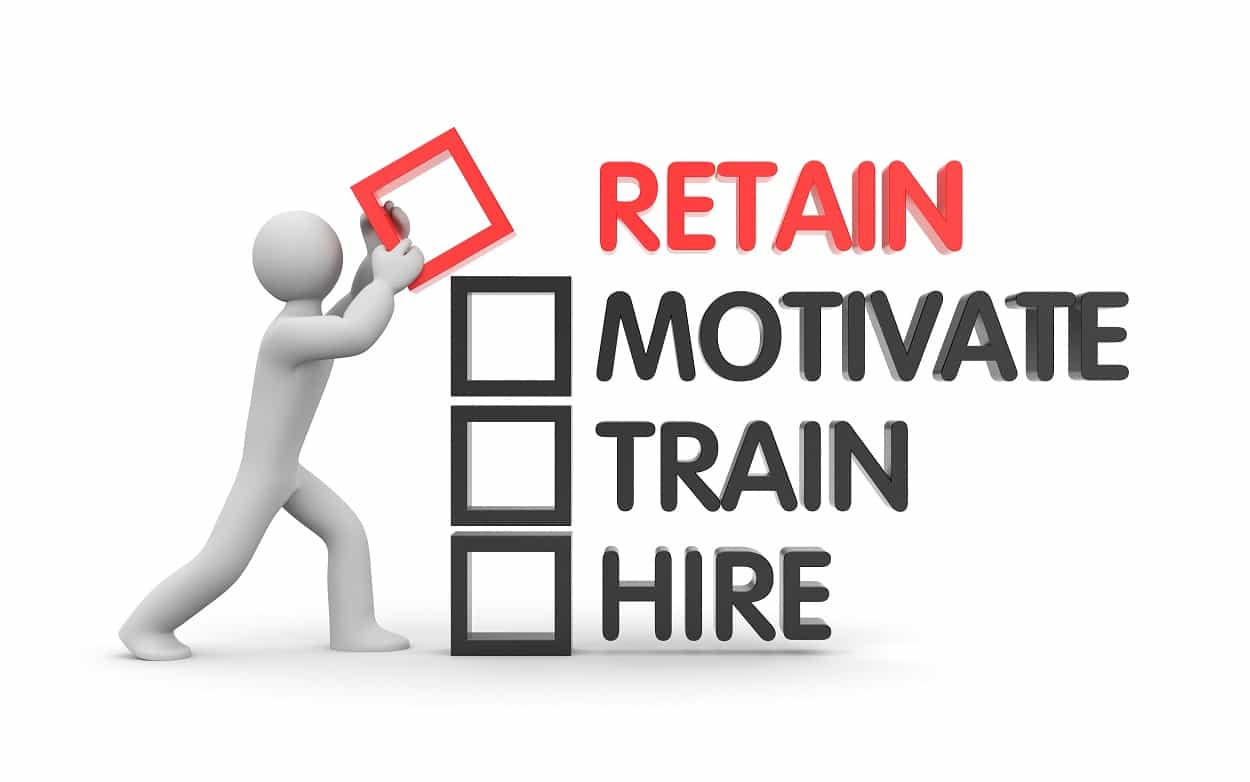This week I sat down with Bernt Schindler to discuss the key reasons an employee may choose to leave, and the best strategies to maximise employee retention. Bernt has decades of experience in recruitment, holding positions such as the Head of Talent Acquisition at leading companies such as IBM and Graincorp. Here are our insights.
Watch the Video
Prefer reading? Here’s the scoop…
How Do You Deal with the Fear that an Employee Will Leave?
Will the new employee be here for the next 12 months or not? Most employers will have this fear at some point. An employee leaving is often wasted time and resources. What’s roughly the average cost to recruit and onboard someone, before they start to produce anything?
The cost is probably around $15-20k, depending on the type of role you’re recruiting for, and the time it’s taking to recruit. That takes into account all the recruiting costs and other variables that come into it. However, the opportunity cost is the main thing. So the answer to this question is: make them not want to leave. If you’ve recruited the right person – they come in and start doing the right job, and you haven’t lied to them about what their role is going to be. They’ll be far more likely to stay.
Misrepresenting roles is a big problem. Hiring managers sit there and think they like the person, so they make the position sound much more enjoyable than it might be. Often hiring managers, or even recruiters will lie about it. They’ll sit there and say we’re gonna give you (the candidate) ‘this and that’. The reality is that when they come into the role, and it’s not what they expected – they instantly disengage. That’s the real cost. You might have someone who immediately disconnects. They’ll do their job, but they won’t do it to their full ability. They’re even a bit pissed off because they feel lied to about what the role is. That’s where the money starts to add up.
Make Them Not Want to Leave
When you’re scared they’re going to leave – it’s your responsibility if they do. Stop transferring blame. If an employee leaves your business have given them something that they need, or something they need to escape. That’s why they’ve left – so hold responsibility. It’s on everybody in the company – the management and leadership and other employees. Hold accountability.
- Number 1: Tell the truth! Tell them what the actual job actually is, let them make their own decision. Treat them like a real human being. If they have all the facts, and they still want to take that job – that’s what makes a difference. Be honest about the positives and the negatives about a role before they start. They’ll be far more likely to engage and stay as they’ve made their own decision about where they’re going to go.
- Number 2: When they get in there, treat them well. Treating people well is almost always a solution to everything. If you treat the new-hire like a human being and give them options, give them career options, things will likely work out. People are going to want to work for you. People are going to want to stay. Even if they’re feeling a bit iffy, they’re going to have the comfort to come to you. They’ll be more likely to communicate and say ‘I’m not happy because of this and this, but I’m comfortable enough to talk about it’. This transparency gives you the option to sit down and change things where possible. So open communication, treating people like human beings rather than staff – that’s the key.
The Manager is a Major Factor in Why an Employee Chooses to Stay or Leave
People work for people – they don’t work for companies. A manager is not just technical – they need to be leaders. They need to effect change. If someone wants to leave, that means that there might be some changes you want to make. If you’re a manager, you need to be a manager that can talk to executives and make the changes required.
“Nothing is more constant in business than change.”
There’s a statement I use when I’m talking with people here at MyRecruitmentPlus:
‘Double-edged sword.’
Our software engineers are highly technical people. $150k+ a year. I say this to my people when we’re recruiting. The chief engineer says,
‘Would they leave in a few months?’
I say that I want to have double-edged swords in every single person in this company. I’m happy with the risk of it. Here’s what I mean by that. These engineers are very highly employable – that means the risk of them leaving the company is higher. I need to be comfortable with that – that’s the only win-win for the company and that person. We cannot compete in the market if we don’t work on the latest, cutting edge software, the company starts to die. At the same time, it puts the onus on us to treat our employees well, to create a fantastic company culture, so that they want to stay. If you combine the cutting edge work with the empowering culture – they will stay.
One of Bernt Schindler’s Favourite Quotes in Business
One of my favourite quotes in business is from a CFO to a CEO:
‘What if we invest all this money in people and they leave?‘
The CEO turns around and says:
‘What if we don’t, and they stay.’
I love that quote. What if we invest in these people – we make them feel good, and we do all these things, we give them all the learning opportunities, and they leave? The CEO’s saying: what if you don’t invest in these people – they’re disengaged, they’re not learning anything and they STAY? They become someone wrong for your business and a staff member you wouldn’t want anyway!
Double-edged sword!
Missed Part 1, 2 and 3 with Bernt Schindler? Read them here:
Advice for Young People Who Want to Become Recruiters
Take your company’s recruitment function to the next level with the #1 end-to-end recruitment and onboarding software platform. Martian Logic – try it for free today.



